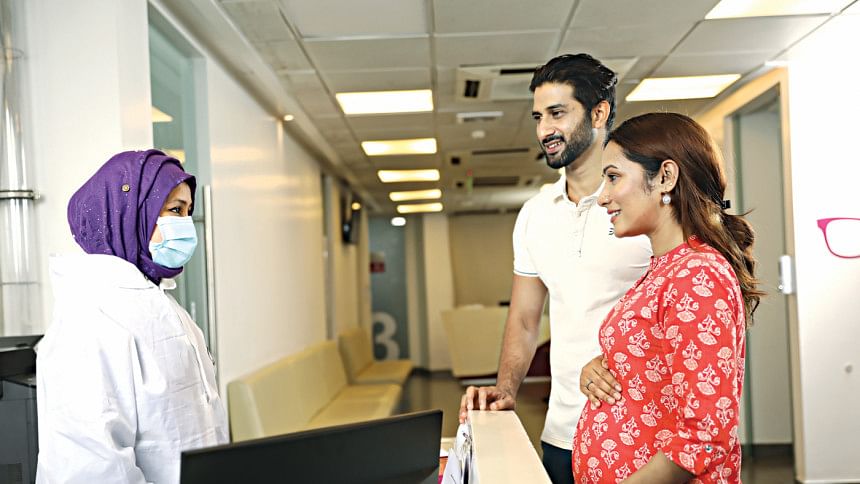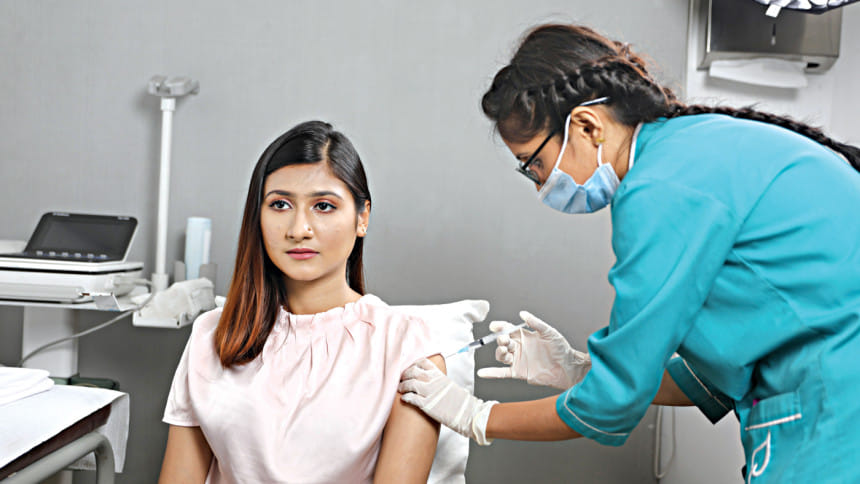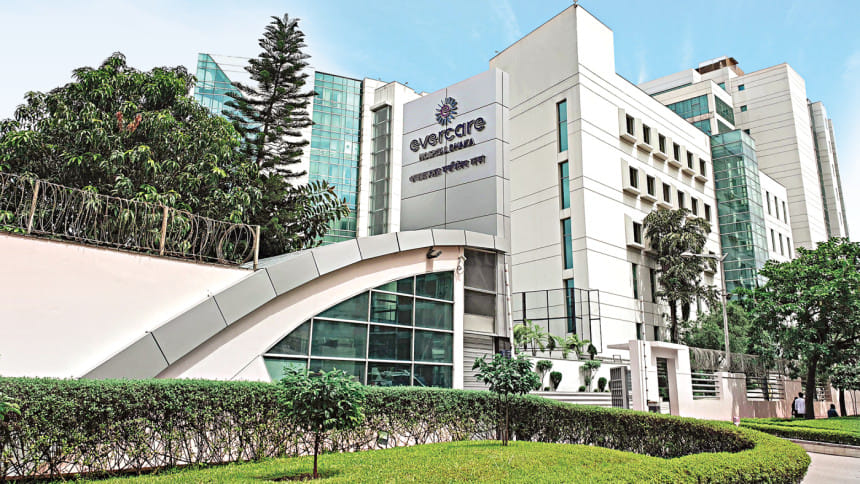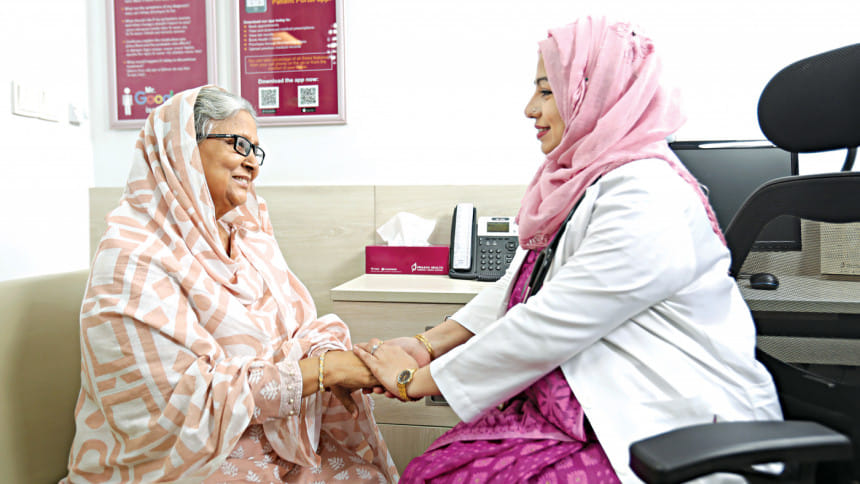Seeking treatment: Choosing between foreign and local healthcare facilities

Every year, thousands of Bangladeshi patients travel abroad in search of better medical treatment despite the availability of similar services within the country. The reasons for this trend range from a lack of trust in the local healthcare system to a desire for more advanced medical facilities. Let us take a look at why patients usually prefer to receive treatment from outside the country, and what can our local medical healthcare industry do to reverse this trend.
Why do patients choose foreign hospitals?
"I was diagnosed with a complicated thyroid disease, so I decided to go to Mount Elizabeth Hospital in Singapore and receive surgery there, just to be safe as I have had relatives who had bad experiences from hospitals here when it came to difficult surgeries. Since then, I have been going there every year for my regular check-up, as the facilities and treatment are top-notch." — Sonia Ahmed
Indeed, for preferring treatment abroad, the main cause seems to be better services from foreign hospitals. A 2021 report from the Times of India states that over half of all medical tourists in India are from Bangladesh. Data from India's tourism ministry indicates that the number of Bangladeshi patients seeking medical treatment in India has risen by 83 per cent in the last three years.
Factors including unprofessional behaviour from healthcare professionals, misdiagnosis, lack of clear explanations of health conditions, and the tendency of doctors to recommend unnecessary tests and drugs play a key role in patients going abroad. Another major factor that plays a role in this trend is the cost of treatment. Many patients feel that the cost of medical treatment in Bangladesh is higher compared to other countries. As a result, a large number of patients flock to India for its relatively affordable excellent facilities.
It is not just the cost and trust issues that are hurting the local healthcare system. The rise of medical tourism has also played a role in this problem. Medical travel agencies have grown in Bangladesh, offering patients a fully-fledged service, from booking appointments with doctors to hotel rooms.
"Our services aim to make the process of seeking medical treatment abroad as smooth as possible for patients and their families by handling logistics. In recent years, medical tourism has grown significantly, with many patients traveling to India and other countries such as Thailand, Singapore, Malaysia, and more. For patients with non-life-threatening conditions, the opportunity to combine treatment with travel is often taken advantage of," said a representative of a medical tourism agency on the condition of anonymity.

Transformation of local healthcare industry in recent years
"I was rushed to the emergency of a top hospital, where I visited my doctor regularly, in Dhaka twice while I was pregnant. Both times, the hospital gave me the right treatment and assured me everything was fine. When it was time for delivery, they did everything to make sure both the baby and I were safe. My husband and I were really impressed by the service of that hospital as we felt like we got treated like we were in a foreign hospital." — Sahana Parvin
It is a well-known fact that the healthcare system in Bangladesh has undergone significant developments in recent years. From the implementation of new technologies and equipment to the training and development of medical professionals, the country has made significant strides in enhancing the quality of care provided to patients. Despite the challenges, the government and private sector has been working together to improve the healthcare system and make it more accessible to the population.
"Every year, so many patients go outside the country to take treatments but honestly, most of those treatments are also available now in Bangladesh. Both public and private hospitals have made tremendous progress in recent years. We now have dedicated hospitals for burn victims, cancer patients, and so on. Previously, many treatments were only available outside Bangladesh like cancer treatment, brain surgery, bone marrow transfer, and kidney transfer, but now, our hospitals are providing these facilities in Bangladesh safely and with international standards," said Dr Arif Mahmud, Director, Medical Services at Evercare Hospital Dhaka, one of the most prominent private hospitals in Bangladesh, giving quality healthcare facilities to its patients.
As healthcare evolves, the need for comprehensive and accessible platforms that provide patients with information about the care they desire becomes increasingly important. Praava Health, a network of family health centres founded in 2018, has been at the forefront of this movement by offering international standard healthcare facilities in the heart of Bangladesh.

"We are proud of our committed, passionate, and internationally-trained doctors that consists of highly-experienced family medicine doctors, gynaecologists, and nutritionists to dentists and physiotherapists, as well as visiting specialists, including cardiologists, nephrologists, ENT specialists, and numerous others. We also offer overseas video consultations with foreign doctors for any second opinions, thereby eliminating the added time and expense patients incur by travelling abroad," said Sylvana Quader Sinha, Founder, Managing Director, and CEO of Praava Health.
What is the path forward for the healthcare industry?
Despite the progress made in the healthcare system of Bangladesh, the medical industry still faces significant challenges, particularly in terms of resources. One of the biggest issues still plaguing the field is a shortage of medical professionals, such as doctors and nurses. According to the World Health Organization, the current ratio of doctors to patients in Bangladesh is only 5.26 to 10,000, which is one of the lowest among South Asian countries. This shortage of medical professionals leads to overworked doctors and nurses, especially in public hospitals, which can contribute to unprofessional behaviour and a lack of trust from patients.
"The medical industry in Bangladesh is suffering due to a lack of trained professionals. The demand for nurses, in particular, is three times greater than the current supply. While there are efforts to increase the number of medical colleges and training facilities, it is still not enough to meet the need. Our hospitals keep adding new technology and offering top-notch services like maintaining strict infection protocols throughout surgeries.

Both the public and private sectors must take action to bring advanced treatments such as liver and heart transplants to Bangladesh. With the right planning and investment, Bangladeshi hospitals can provide the same level of care as foreign hospitals in the near future," said Dr Arif Mahmud.
Sylvana Quader Sinha said, "There needs to be an increased focus on developing and integrating technology-based healthcare facilities in the country. Patients should no longer be responsible for maintaining their own medical records and carrying them from doctor to doctor. Better systems and record keeping, just to start, can go far in improving the quality of care. In addition, trust in the entire system needs to be improved by ensuring standards of quality. Government bodies like the Bangladesh Accreditation Board (BAB) can provide regulations and accreditations to different diagnostic centres and hospitals, and also monitor them on a regular basis."
A significant factor that contributes to patients seeking medical treatment abroad is a lack of knowledge about the country's improving healthcare facilities. Many patients are not aware of the advancements and improvements made in the healthcare system in Bangladesh and the availability of high-quality medical care within the country. This lack of information leads them to believe that the best option for medical treatment is abroad. It is important for the government and private sector to increase awareness and educate the public about the country's healthcare facilities and services to reduce the need for medical tourism.

Photo: Praava Health and Evercare Hospital Dhaka

 For all latest news, follow The Daily Star's Google News channel.
For all latest news, follow The Daily Star's Google News channel. 



Comments